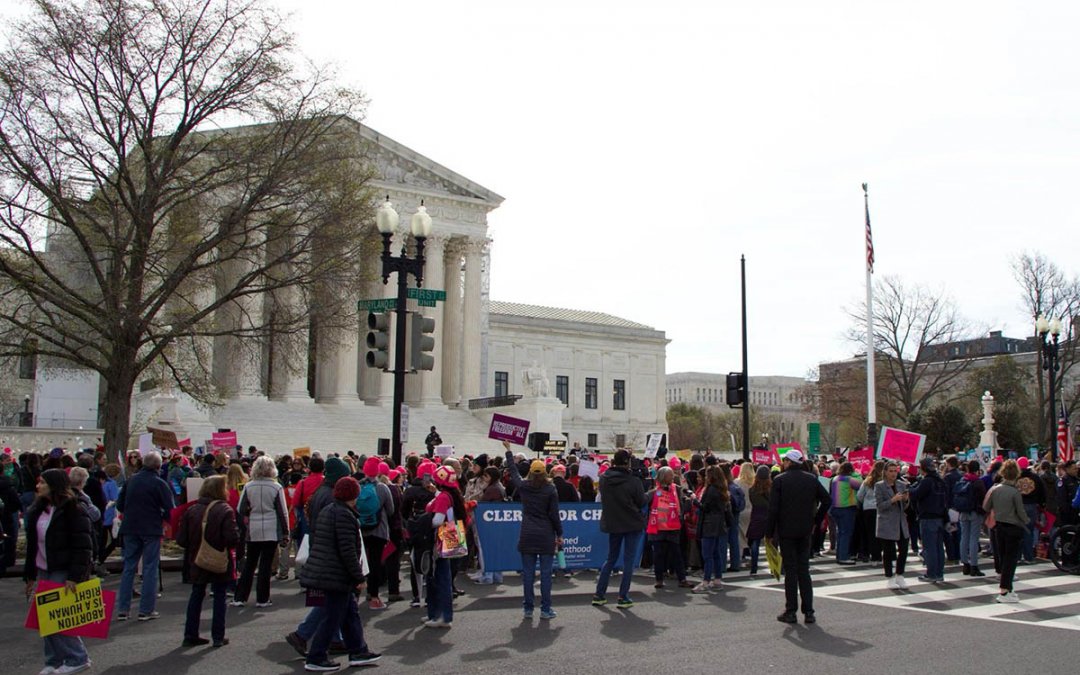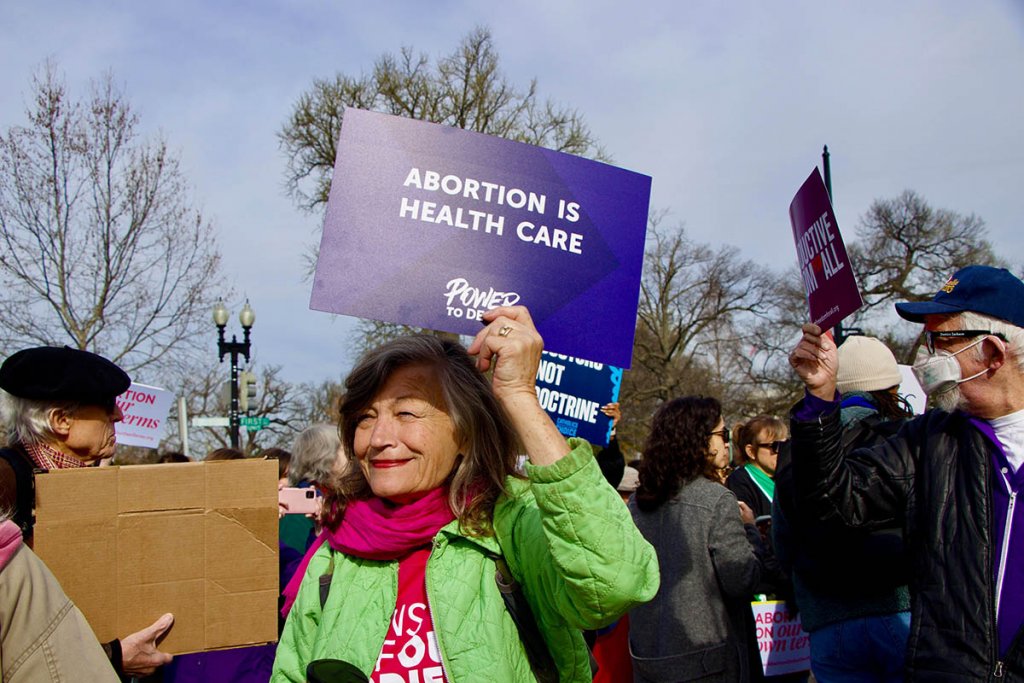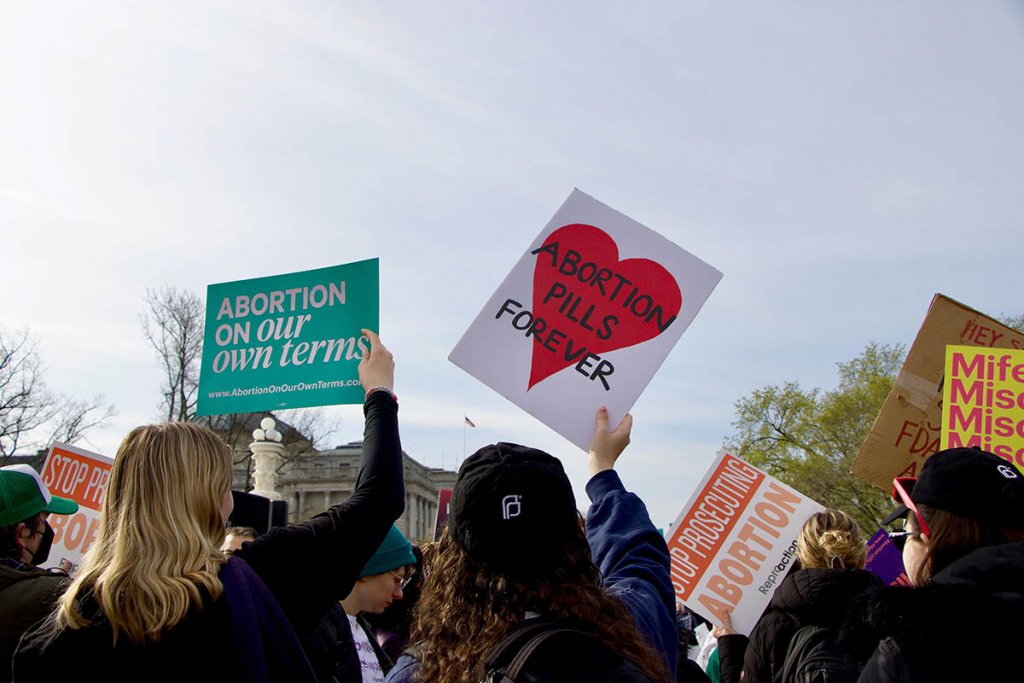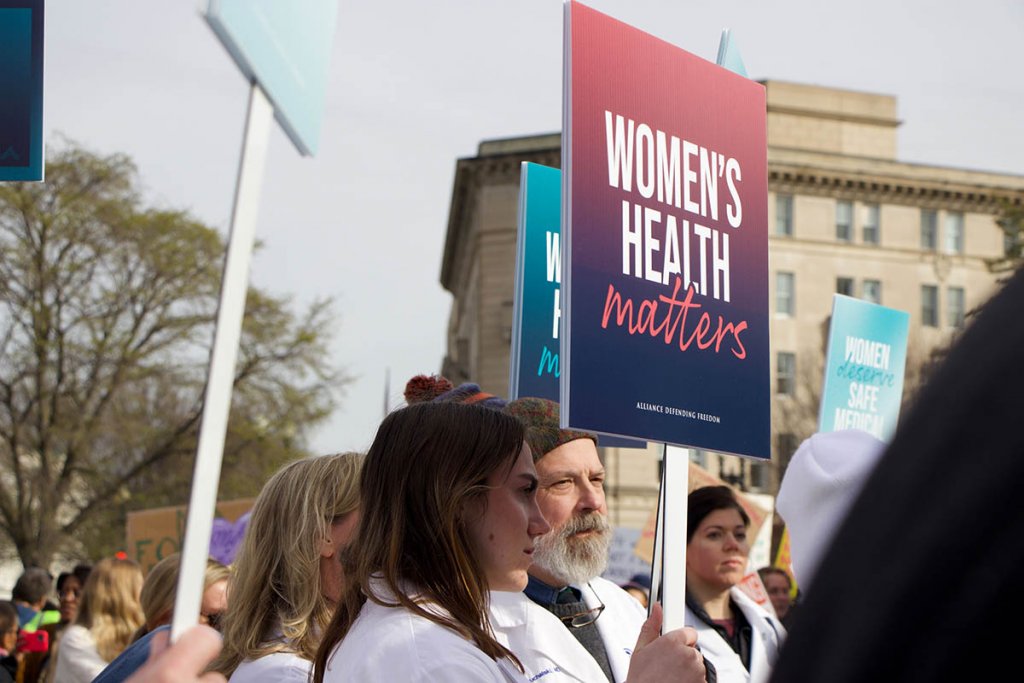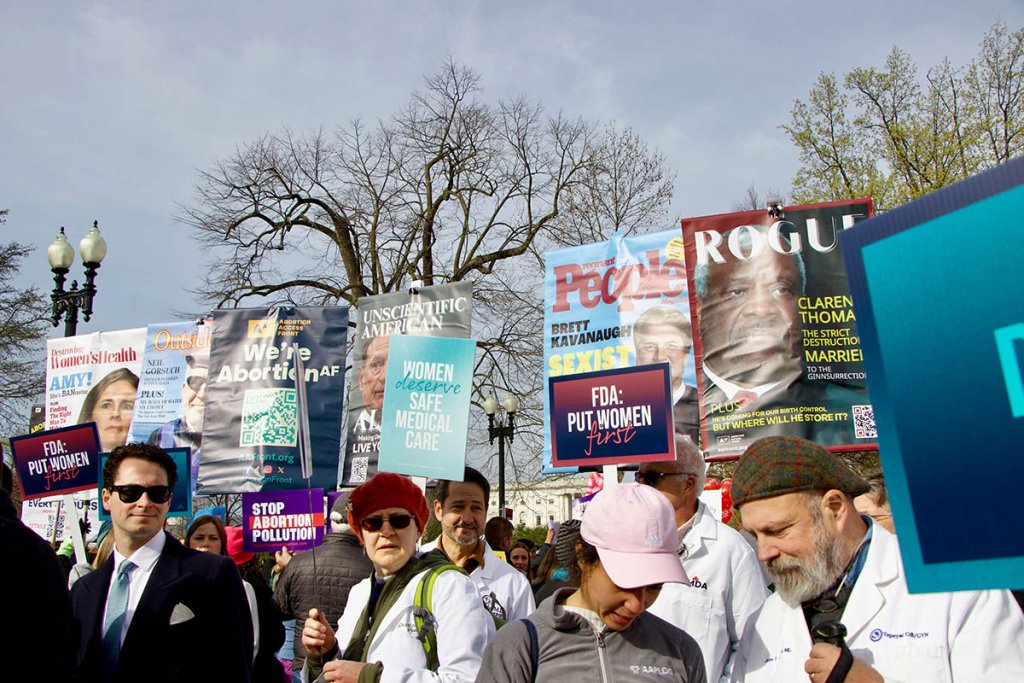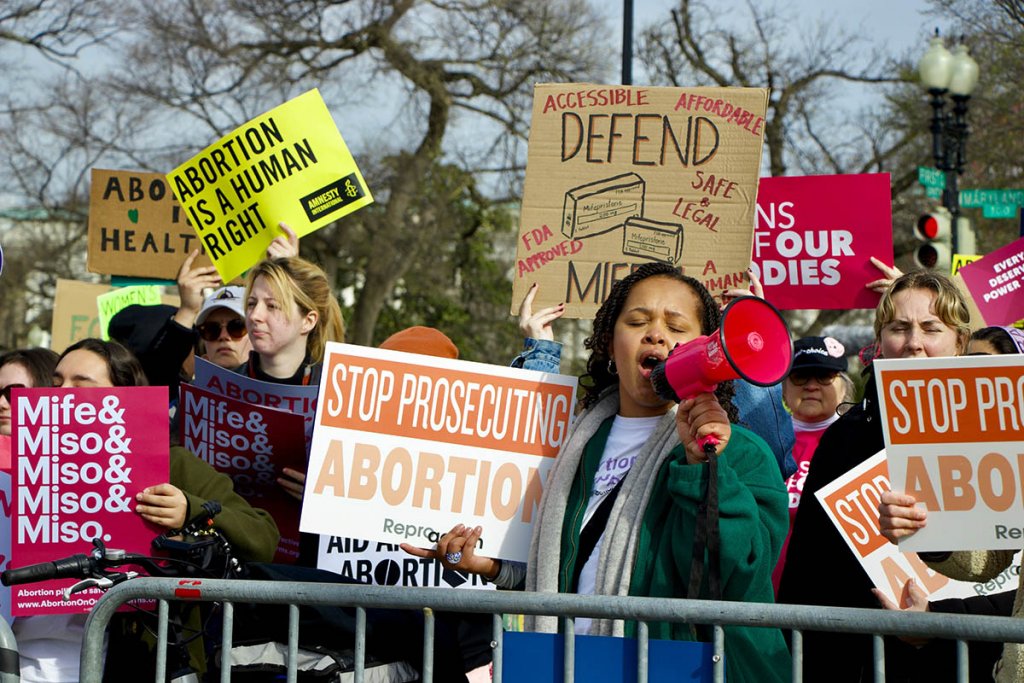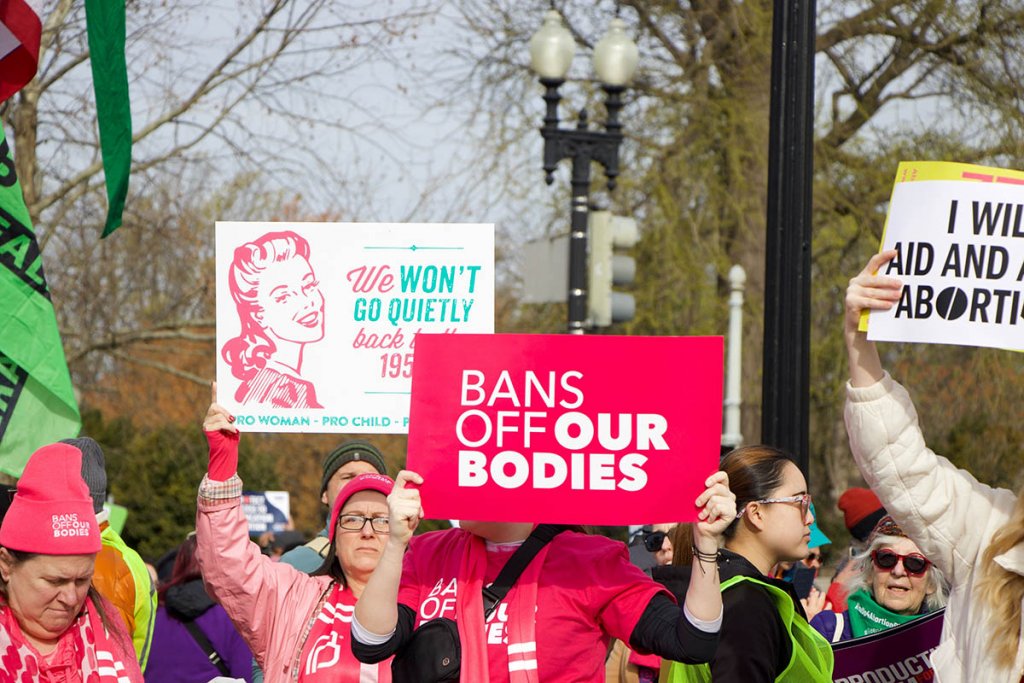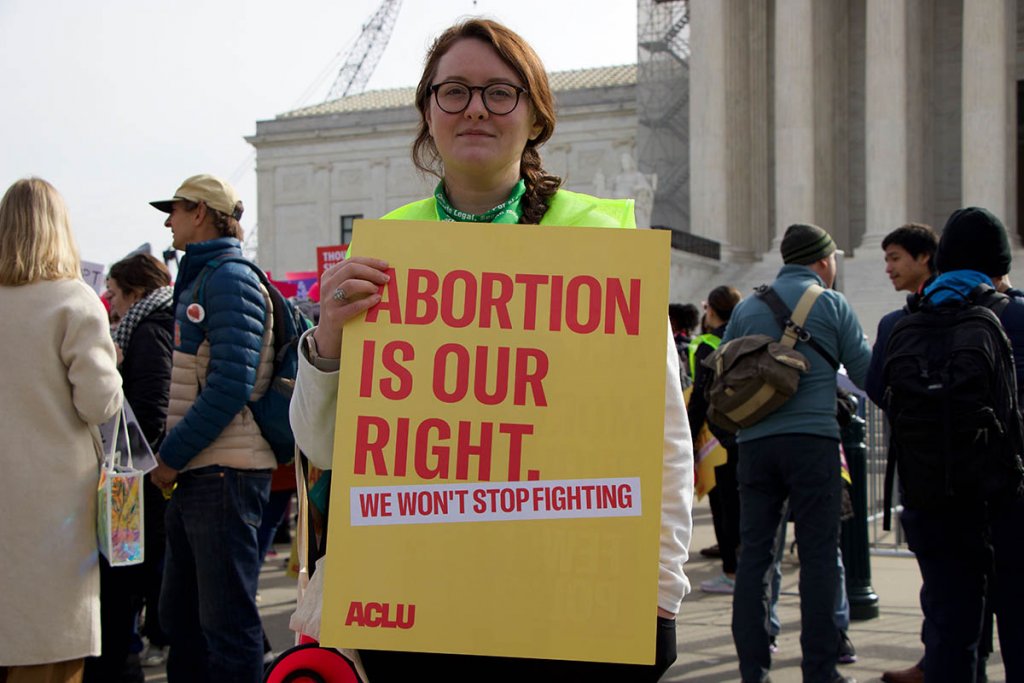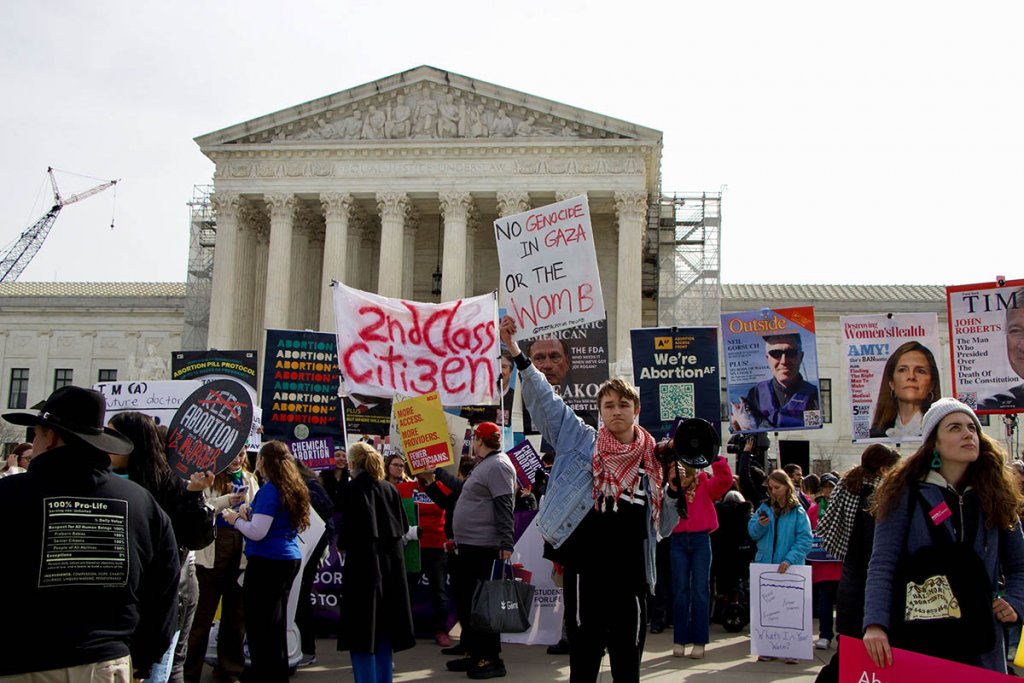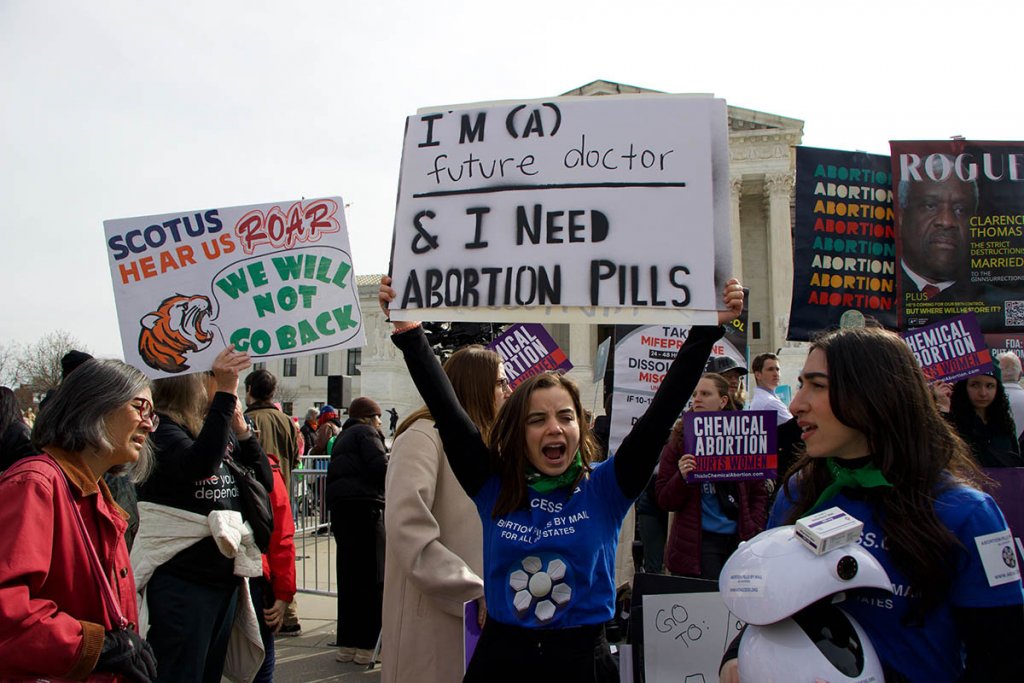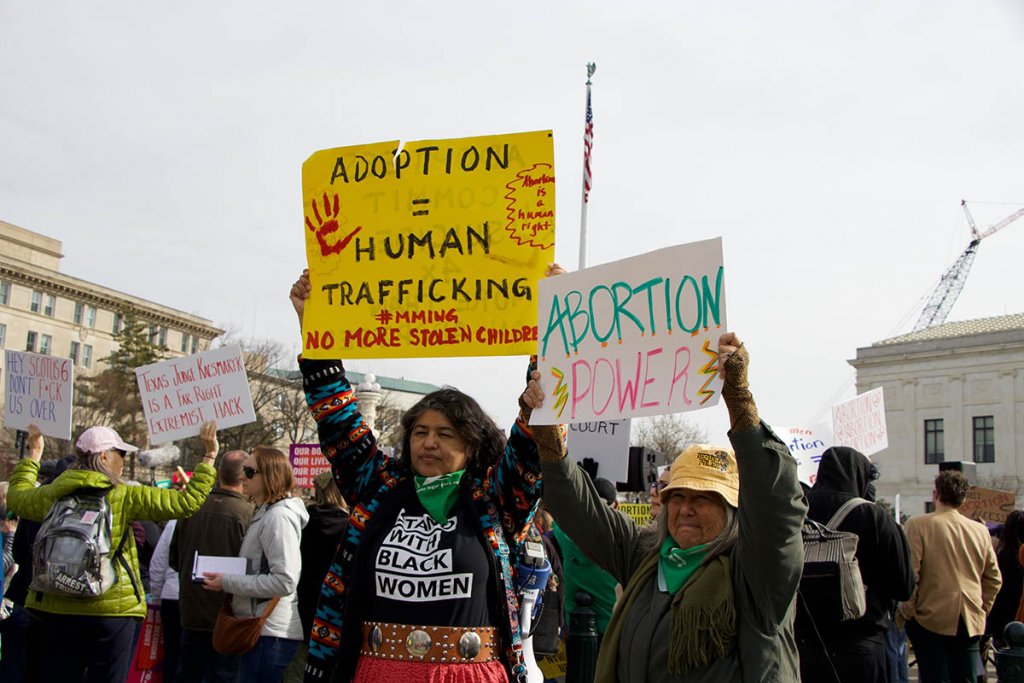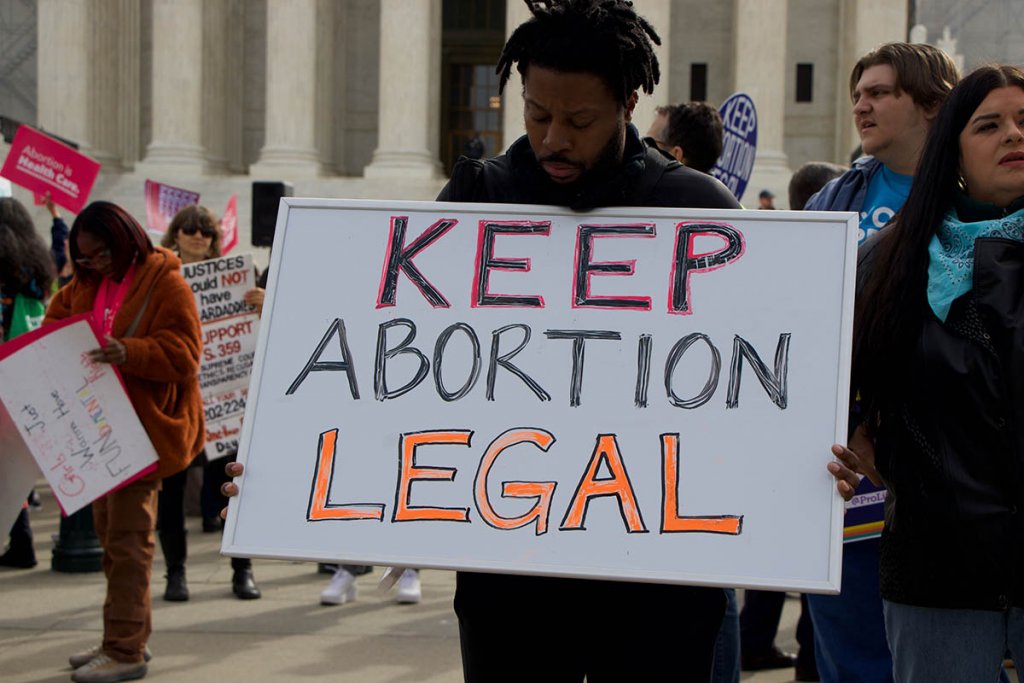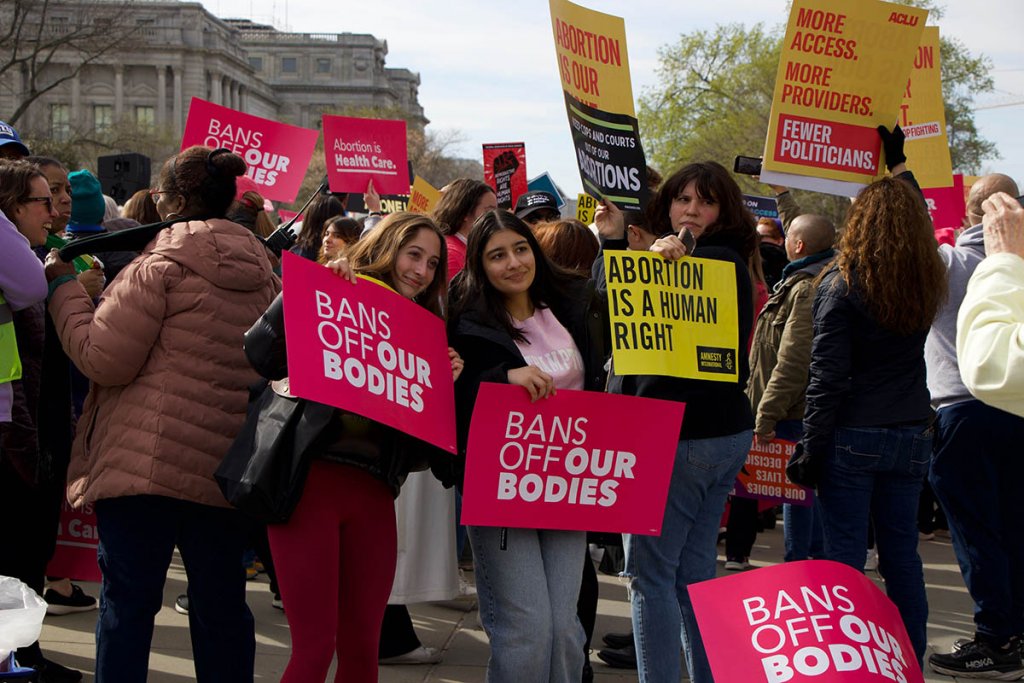WASHINGTON – The Supreme Court signaled it may reject a challenge to the Federal Drug Administration’s approval of mifepristone during oral arguments Tuesday. If the court does so, it would preserve access to the abortion pill. Supporters and opponents of the abortion pill expressed their opinions outside the building.
Shaina Goodman, the director for reproductive health and rights at the National Partnership for Women & Families, said that it would be devastating if the Supreme Court overturned or reversed the FDA’s approval of mifepristone; it would have far-reaching consequences for women’s access to reproductive health. The majority of people in the United States opt for pharmaceutical abortion as opposed to surgical abortion, which is true even for those who reside in states where surgical abortion is legally protected. This has repercussions for women throughout the country when it comes to abortion treatment options.
“This is something that people should be entitled to decide for themselves in their own lives, and it is not the business of policymakers or judges to be telling people that they can’t access abortion or to undermine their bodily integrity and autonomy,” said Goodman.
Medication abortion has increased significantly in the U.S. healthcare system, from 53% of all abortions in 2020 to 63% by 2023. According to new data from the Guttmacher Institute’s Monthly Abortion Provision Study, about 642,700 women underwent medication abortions under medical supervision in the first year following the Supreme Court’s decision in Dobbs v. Jackson Women’s Health Organization.

Protesters display a Pro-Roe banner on March 26, 2024 outside the Supreme Court. (Laeba Hafiz/MEDILL NEWS SERVICE)
Shaohannah Faith, an anti-abortion supporter, said that no child deserves to die in the womb because of their parents’ behavior. “The pro-life movement is a campaign that advocates for innocent human life in the womb; we’re not after your sex lives” said Faith.
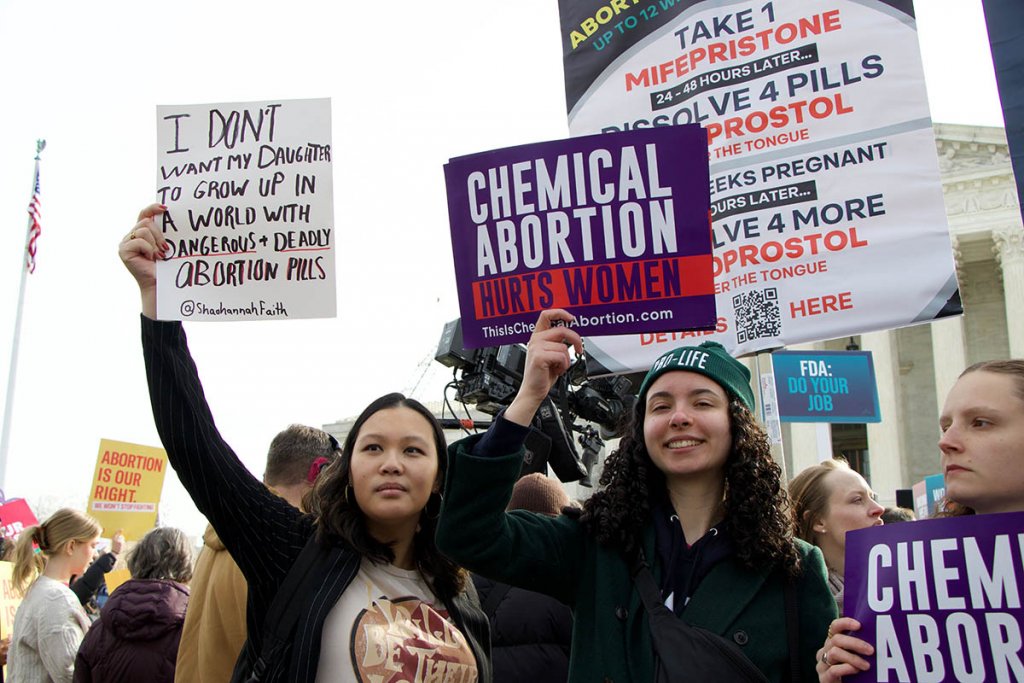
Anti-abortion protestor Shaohannah Faith holds up a sign outside of the Supreme Court on March 26, 2024. (Laeba Hafiz/MEDILL NEWS SERVICE)
Destiny Lopez, acting Co-CEO of the Guttmacher Institute, was in the crowd protesting the challenge to the FDA. She said the case is based on so-called junk science. “The outcome remains uncertain, but historically, conservative justices have disregarded scientific evidence. Our stance is clear: full access to Mifepristone aligns with the facts and science,” said Lopez.
She continued, “Fourteen states in the country have banned abortions. Mifepristone access is thus an essential component of abortion care in this nation.”
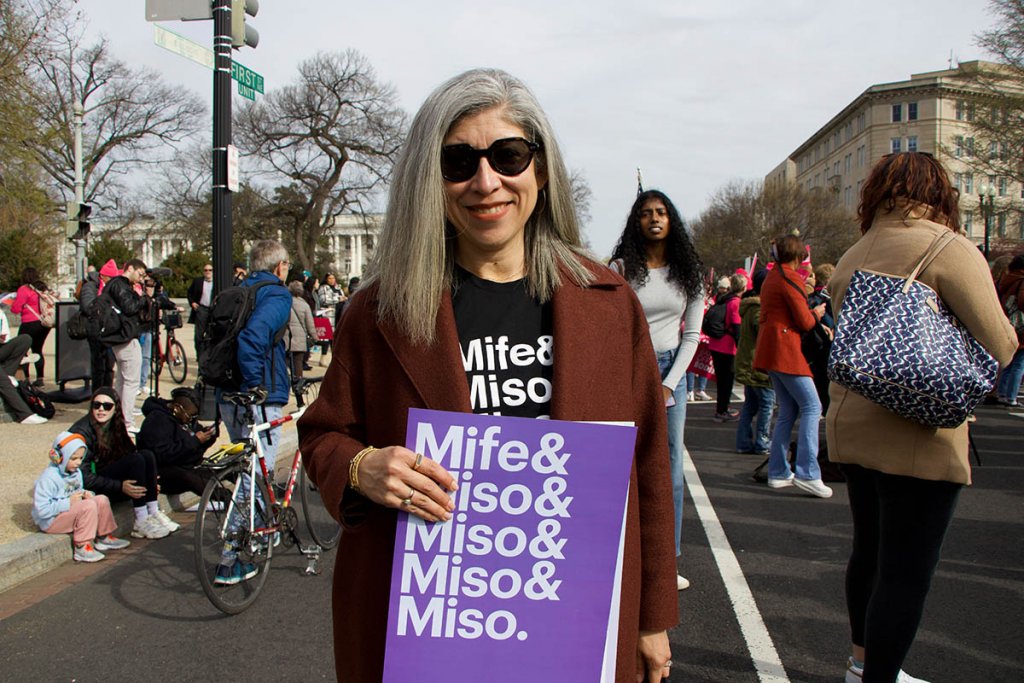
Destiny Lopez, Co-CEO of the Guttmacher Institute, joins other advocates of medication abortion options in front of the Supreme Court on March 26, 2024. (Laeba Hafiz/MEDILL NEWS SERVICE)
Another protestor, Sharon, traveled from West Virginia. She said in rural areas of America, access to birth control is difficult, where abusive relationships can trap women. She explained this can lead women to remain in situations that involve domestic violence, especially when it comes to childcare responsibilities. This year, West Virginia enacted a law making it illegal to beat a spouse.
“Now, do you think that those women who don’t have access to birth control to wait for their men to beat them have fair and equal access to justice in this country? No, they do not,” said Sharon.
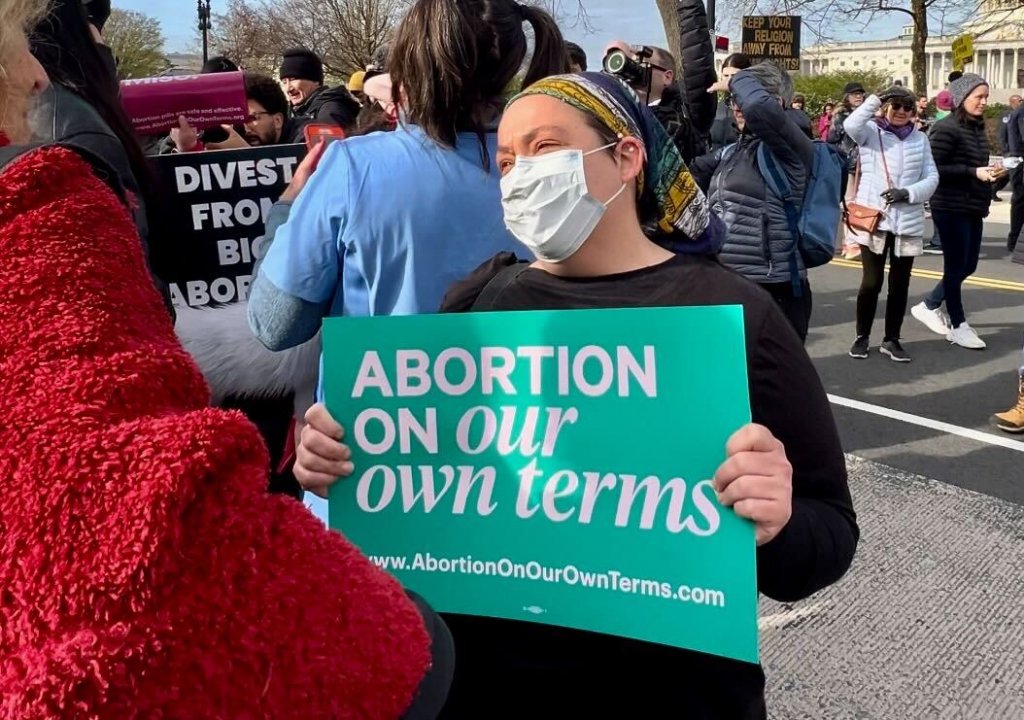
Sharon, a pro-abortion protestor, holds a sign in front of the Supreme Court on March 26, 2024. (Laeba Hafiz/MEDILL NEWS SERVICE)
View more photos from the March 26, 2024 protest outside of the Supreme Court building:
(Laeba Hafiz/MEDILL NEWS SERVICE)

